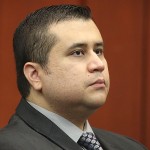Welcome, September Bloggers
 Our guest bloggers in September are Charles “CJ” Szafir ’11 and 2L Charles Sharman. Many thanks to our August guests, Ryan Gehrke ’11 and 3L Brittney Steele.
Our guest bloggers in September are Charles “CJ” Szafir ’11 and 2L Charles Sharman. Many thanks to our August guests, Ryan Gehrke ’11 and 3L Brittney Steele.
 Our guest bloggers in September are Charles “CJ” Szafir ’11 and 2L Charles Sharman. Many thanks to our August guests, Ryan Gehrke ’11 and 3L Brittney Steele.
Our guest bloggers in September are Charles “CJ” Szafir ’11 and 2L Charles Sharman. Many thanks to our August guests, Ryan Gehrke ’11 and 3L Brittney Steele.
 Yesterday the U.S. Department of the Treasury and the Internal Revenue Service (IRS) announced that legally married same-sex couples will be recognized and treated as married for all federal tax purposes. As long as the couple is legally married it does not matter if they live in a jurisdiction that does not recognize same-sex marriages. The announcement comes just months after the Supreme Court’s decision in United States v. Windsor, which held that a key provision of the Defense of Marriage Act (DOMA) violated principles of equal protection under the Due Process Clause of the Fifth Amendment. The ruling gives married same-sex couples the freedom to move throughout the United States without having to worry about federal tax implications. However, the ruling does not apply to couples in domestic partnerships or civil unions.
Yesterday the U.S. Department of the Treasury and the Internal Revenue Service (IRS) announced that legally married same-sex couples will be recognized and treated as married for all federal tax purposes. As long as the couple is legally married it does not matter if they live in a jurisdiction that does not recognize same-sex marriages. The announcement comes just months after the Supreme Court’s decision in United States v. Windsor, which held that a key provision of the Defense of Marriage Act (DOMA) violated principles of equal protection under the Due Process Clause of the Fifth Amendment. The ruling gives married same-sex couples the freedom to move throughout the United States without having to worry about federal tax implications. However, the ruling does not apply to couples in domestic partnerships or civil unions.
Yesterday’s “ruling applies to all federal tax provisions where marriage is a factor, including filing status, claiming personal and dependency exemptions, taking the standard deduction, employee benefits, contributing to an IRA, and claiming the earned income tax credit or child tax credit.” IR-2013-72. The ruling is to be applied retroactively so married same-sex couples have the opportunity to file or amend federal tax returns for the 2010, 2011, and 2012 tax years. Before amending returns, couples will want to determine if their combined income will subject them to the “marriage penalty” which could place them in a higher tax rate bracket.
 Now more than ever, journalism appears to be no longer about reporting facts or the search for truth, but instead about manipulating facts to maximize ratings. A case in point is the complaint George Zimmerman filed last December against NBC. The complaint alleges NBC’s use of edited 911 audio, as part of its coverage of Trayvon Martin’s death, was defamatory and an intentional infliction of emotional distress.
Now more than ever, journalism appears to be no longer about reporting facts or the search for truth, but instead about manipulating facts to maximize ratings. A case in point is the complaint George Zimmerman filed last December against NBC. The complaint alleges NBC’s use of edited 911 audio, as part of its coverage of Trayvon Martin’s death, was defamatory and an intentional infliction of emotional distress.
The transcript of the 911 call, released by the City of Sanford, begins as follows:
Dispatcher: Sanford Police Department. . . .
Zimmerman: Hey we’ve had some break-ins in my neighborhood, and there’s a real suspicious guy, uh, [near] Retreat View Circle, um, the best address I can give you is 111 Retreat View Circle. This guy looks like he’s up to no good, or he’s on drugs or something. It’s raining and he’s just walking around, looking about.
Dispatcher: OK, and this guy is he white, black, or Hispanic?
Zimmerman: He looks black.
Dispatcher: Did you see what he was wearing?
Zimmerman: Yeah. A dark hoodie, like a grey hoodie, and either jeans or sweatpants and white tennis shoes. He’s [unintelligible], he was just staring . . .
Dispatcher: OK, he’s just walking around the area . . .
Zimmerman: . . . looking at all the houses.
Dispatcher: OK . . .
Zimmerman: Now he’s just staring at me.
Dispatcher: OK – you said it’s 1111 Retreat View? Or 111?
Zimmerman: That’s the clubhouse . . .
Dispatcher: That’s the clubhouse, do you know what the – he’s near the clubhouse right now?
Zimmerman: Yeah, now he’s coming towards me.
Dispatcher: OK.
Zimmerman: He’s got his hand in his waistband. And he’s a black male.
Zimmerman’s complaint alleges “NBC saw the death of Trayvon Martin not as a tragedy but as an opportunity to increase ratings, and so set about to create the myth that George Zimmerman was a racist and predatory villain,” reported a “reprehensible series of imaginary and exaggerated racist claims,” and created a “false and defamatory misimpression using the oldest form of yellow journalism: manipulating Zimmerman’s own words, splicing together disparate parts of the [911] recording to create the illusion of statements that Zimmerman never actually made.”